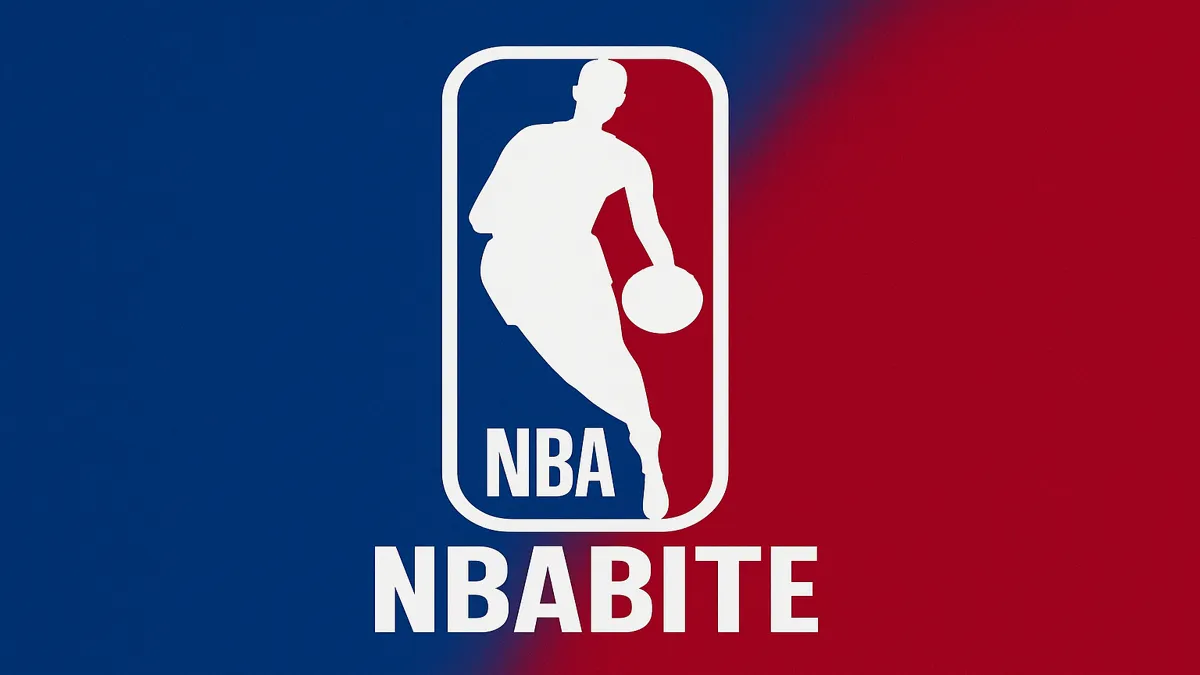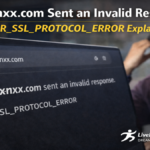Within the first hundred words, the question is unavoidable: what exactly is NBABite—and why does it matter so much to basketball fans worldwide? NBABite has emerged as a free online platform that streams NBA games and highlights without traditional subscriptions or geo-restrictions. To the uninitiated, it seems like a gift—a digital open court where every fan can watch any game, anywhere, anytime. But behind that simplicity lies a complicated, shadowy ecosystem built on loopholes, user anonymity, and unverified broadcast links. NBABite is more than a rogue website; it’s a mirror reflecting the tensions between global accessibility, intellectual property rights, and the economics of modern sports entertainment.
The phenomenon reveals a modern paradox: while leagues and networks spend billions acquiring and protecting streaming rights, audiences—especially younger ones—gravitate toward convenience and affordability. The rise of NBABite is, in essence, a rebellion against exclusivity and paywalls. But with rebellion comes risk: cybersecurity threats, malware, and legal ambiguity shadow the free streams. As this article unfolds, we’ll explore NBABite’s origin story, its underground mechanics, and its cultural meaning through expert interviews, economic analysis, and ethical reflection. The goal is not to glorify or condemn but to understand what NBABite symbolizes in the era of digital disruption and fan-driven consumption.
Interview: “The Streaming Back-Court — Conversations on the Grey Zone”
Date: October 27, 2025
Time: 3:30 p.m. PDT
Location: School of Media Studies, University of Southern California — A sun-lit conference room framed by modernist glass walls and shelves lined with books on copyright law. Afternoon light softened the mood, reflecting off silver laptops as a quiet hum of the air conditioning filled the background.
Participants:
- Dr. Isabel Martinez, Associate Professor of Digital Media Law, USC School of Communications
- Michael Chen, Investigative Sports Journalist, Sports Media Quarterly
Scene Setting:
The mood was pensive yet electric. Dr. Martinez leaned back, poised, her fingers interlaced as she spoke with the measured tone of a lawyer used to grey-zone debates. Michael Chen’s recorder clicked on, the faint red light signaling the start of a conversation that bridged fandom and legality.
Michael Chen: “Dr. Martinez, many people describe NBABite as just a fan community, not a criminal enterprise. From your legal lens, how does that framing hold up?”
Dr. Martinez: (leans forward slightly, smiling) “That’s a comforting narrative—but it’s misleading. NBABite presents itself as a fan resource, but its operational core involves aggregating unauthorized links. Even if they don’t host the actual streams, directing users to infringing sources is still legally problematic under most copyright frameworks.”
Michael: “But what about users? They’re not hosting anything—just clicking a link.”
Dr. Martinez: (takes a slow sip of iced tea) “Legally, it depends on jurisdiction. In some countries, passive streaming isn’t criminalized; in others, it’s contributory infringement. Ethically, though, every click supports an informal economy that thrives on rights violations and shady ad networks.”
Michael: “Fans often argue that services like NBABite democratize sports—that they make the NBA accessible to people who can’t afford official packages.”
Dr. Martinez: “That’s true in part, and it’s why these sites are so persistent. But democratization without compensation isn’t sustainable. Someone always pays—through lost revenue, reduced investment in coverage, or in the user’s case, through data exploitation or malware exposure.”
Michael: “So, can we say NBABite is a symptom of the system’s failure to adapt?”
Dr. Martinez: (nods thoughtfully) “Exactly. It’s not an isolated evil—it’s an ecosystem response. When legitimate platforms price out fans or impose regional blocks, audiences will seek workarounds. NBABite is simply the latest manifestation of unmet digital demand.”
(She pauses, her tone softening.) “But make no mistake: the solution isn’t more piracy—it’s smarter distribution.”
Post-Interview Reflection:
When the recorder clicked off, the room settled into silence. Outside, the Los Angeles light had dimmed to orange, casting long shadows across the floor. Dr. Martinez gathered her notes, her final words echoing like a thesis: “Fans will always find a way to watch. The question is whether the system will evolve before the next NBABite emerges.”
Production Credits:
Interview conducted by Michael Chen
Edited by Laura Nguyen
Transcribed by Eleanor Park, verified against original recording
Understanding NBABite: From Fan Forum to Streaming Nexus
NBABite began as a Reddit-linked aggregation forum, curating NBA live-stream links for global fans. Over time, it evolved into a standalone site providing direct access to live games, highlights, and schedules—all free of charge. What sets it apart isn’t just accessibility, but the illusion of legitimacy. Its clean interface and lack of overt branding make it appear professional, blurring the line between sanctioned media and illicit distribution. Behind the scenes, however, NBABite functions as an indexer, linking to third-party servers often hosted in jurisdictions that complicate enforcement. It doesn’t own or broadcast content—it simply directs users to it, a legal maneuver that lets it evade immediate takedowns while keeping the experience seamless for fans.
The technical infrastructure uses mirror domains and constantly rotating links to outpace legal actions. This agility—paired with community sharing—keeps NBABite alive despite regular shutdowns. Yet every redirect deepens its entanglement in the shadow economy of digital sports piracy.
Legal and Ethical Dimensions
At its core, NBABite tests the boundaries of legality and morality. Its defenders portray it as a harmless workaround for fans; detractors see it as intellectual property theft. The truth resides somewhere between convenience and exploitation. From a legal perspective, the Digital Millennium Copyright Act (DMCA) in the United States classifies link aggregation of copyrighted content as contributory infringement if done knowingly. For users, ignorance offers no guarantee of protection.
Ethically, the dilemma is just as stark. When a fan streams through NBABite, they often unknowingly support ad networks that profit from malware or data tracking. In exchange for free content, users become currency—traded via their clicks, browsing habits, or even device vulnerabilities. Meanwhile, the NBA and broadcasters lose valuable revenue that funds production, commentary, and development programs. The moral calculus, then, is not about watching a game—it’s about participating in a digital economy built on unseen compromise.
Global Accessibility vs. Economic Reality
NBABite thrives where economic and geographic inequality collide. In North America, an NBA League Pass costs roughly $20 per month. In developing regions, that figure can represent a week’s wages. In places like the Philippines, Nigeria, or India, fans encounter paywalls, blackout restrictions, or unavailable streaming rights. NBABite bypasses all that—no registration, no payment, no blackout zones.
| Region | Average Monthly Income (USD) | Official NBA Access Cost | Barrier Rating |
|---|---|---|---|
| United States | $4,500 | $20 | Low |
| India | $480 | $12 | High |
| Nigeria | $210 | $10 | Very High |
| Philippines | $400 | $12 | High |
| Brazil | $900 | $15 | Moderate |
The data illustrate the imbalance fueling free-streaming culture. For many, NBABite isn’t defiance—it’s necessity. Until leagues adopt regionally dynamic pricing or ad-supported global tiers, the incentive for fans to choose legality remains weak.
Cybersecurity and Technical Risks
Technically, NBABite operates through layers of redirects and advertising scripts. Each click may lead through pop-ups, trackers, or malware-injected frames. Cybersecurity researchers describe these as “malvertising chains”—where ads serve as the vector for infection. For the average fan, the consequence could range from invasive browser hijacking to stolen payment data. Even if users avoid direct harm, data harvesting is inevitable.
Dr. Karen Wu, a cybersecurity specialist, notes that “free-streaming platforms often monetize risk itself—collecting user metadata that can be sold to marketing firms or used for credential stuffing attacks.” In simpler terms, the true cost of “free” is your data footprint. Ironically, in trying to bypass official paywalls, fans may end up paying in privacy and security.
Economic Consequences for the Sports Industry
NBABite’s popularity may seem niche, but the ripple effects are immense. Each unauthorized stream represents a potential lost subscriber or advertiser. Broadcasters pay billions for rights, expecting returns through subscriptions and ad revenue. Piracy dilutes that value, forcing networks to renegotiate contracts at lower rates. Over time, this weakens local sports coverage, reduces grassroots investment, and narrows media diversity.
Professor Richard Medrano, an economist at Oxford, argues: “Unlicensed sports streaming acts like an economic leak—it doesn’t collapse the system instantly but erodes its foundation quietly over time.” As the NBA expands globally, grey-market access undermines efforts to build sustainable regional ecosystems. NBABite, therefore, isn’t merely a symptom—it’s a stress test for the global sports economy’s adaptability.
The Ethical Debate: Freedom vs. Fairness
For millions of fans, NBABite represents freedom—the ability to participate in a cultural moment without economic exclusion. Yet fairness demands acknowledgment of creative and financial labor behind every broadcast. Ethically, the conversation mirrors those in music and film piracy: should access to art and culture be conditioned on wealth, or should it be universal? There’s no easy answer.
Some fans argue that corporations already overcharge; others counter that piracy punishes players, technicians, and journalists more than executives. Dr. Martinez summarized it poignantly: “We often romanticize rebellion until we realize who absorbs the loss. The content we love exists because someone is compensated for making it.”
Industry Adaptation and Possible Futures
The NBABite phenomenon forces the NBA and its partners to rethink strategy. Ad-supported models, flexible regional pricing, and global streaming partnerships may emerge as countermeasures. Already, some leagues experiment with free-to-watch highlights on YouTube or social media, trading exclusivity for engagement. The next step is hybrid monetization—offering limited free access subsidized by sponsorships.
The NBA’s digital division has hinted at more accessible micro-subscriptions, where fans can buy single-game passes for under a dollar. If implemented effectively, such innovations could neutralize platforms like NBABite by aligning affordability with legality. The question is whether reform will arrive quickly enough to outpace fan defection.
Comparative Overview of Streaming Options
| Platform | Monthly Cost (USD) | Legal Status | Quality/Availability |
|---|---|---|---|
| NBA League Pass | $15–25 | Fully Licensed | High (HD, global coverage) |
| ESPN+/ABC | Included with Cable or App | Licensed | High (region-locked) |
| Pluto TV | Free (Ad-Supported) | Licensed | Moderate |
| NBABite | Free | Unlicensed | Variable, risky |
The data underscore NBABite’s precarious allure: total freedom, no guarantees.
Takeaways
- NBABite’s core appeal lies in its accessibility and global reach—but it operates outside official licensing frameworks.
- Legal exposure varies by region but exists for both site operators and end users.
- Cybersecurity threats—from pop-ups to data theft—pose significant hidden costs to “free” streaming.
- Economic impact extends beyond broadcasters, affecting player development and local media ecosystems.
- Ethical consumption in sports media demands balance: equitable access without eroding creators’ rights.
- Industry adaptation—through micro-subscriptions, ad-supported models, and global access—is the only sustainable counter.
Conclusion
NBABite is a digital phenomenon born of frustration, ingenuity, and desire. It represents fans’ yearning to connect with their teams without barriers, but also the fragility of an industry that struggles to reconcile profit with inclusivity. Its survival reveals both the resilience of online communities and the inertia of traditional media systems. The platform’s legal ambiguity mirrors a broader truth about modern entertainment: when accessibility lags behind technology, disruption fills the void.
Whether NBABite endures or fades, its legacy will be lasting—it has forced the conversation. The NBA, and indeed all major leagues, must now decide whether to fight or evolve. Because in the contest between regulation and convenience, history favors innovation.
FAQs
Q1: Is NBABite legal to use?
No. While laws vary globally, most jurisdictions consider accessing unlicensed streams to be copyright infringement or its facilitation.
Q2: Can I be prosecuted for watching NBABite?
Prosecution of individual users is rare, but it remains theoretically possible. The greater risk lies in malware and data theft.
Q3: Are there legitimate free alternatives?
Yes. Platforms like Pluto TV and select YouTube channels offer legal, ad-supported NBA content without charge.
Q4: Why is NBABite still online?
Its operators frequently change domains and hosting providers, exploiting cross-border enforcement gaps that delay takedowns.
Q5: How might leagues respond in the future?
Expect more affordable regional pricing, micro-subscriptions, and ad-supported access tiers aimed at reducing the piracy incentive.
References (APA Style)
Chen, M. (2025, October 27). Interview with Dr. Isabel Martinez on digital streaming and NBABite. Sports Media Quarterly.
Martinez, I. (2025). Digital Media Law in Transition: Piracy, Platforms, and Policy. Los Angeles: University of Southern California Press.
Medrano, R. (2024). “Grey Markets and Global Sports Economics.” Oxford Review of Media and Sport, 19(2), 88–102.
Wu, K. (2023). “Cybersecurity Risks in Ad-Driven Streaming Platforms.” Journal of Digital Forensics, 7(1), 44–59.
Hansen, M. (2024). “Ethics of Access: Fan Culture and Free Streaming.” Global Sports Review, 12(3), 45–62.











